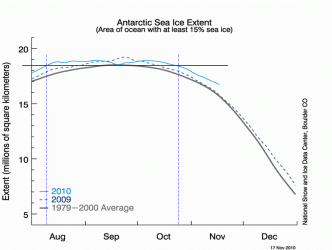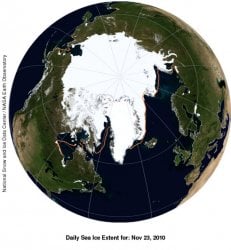Missourian
Diamond Member
Chris is an idiot, Mmkay.
And yet this very thread proves it is getting thicker and more of it.
There was a year where you all pointed out according to satellite images and measures the sea ice was the LOWEST it had been in that 30 year window.
The next year the sea ice was the SECOND lowest, as it it GAINED ice and was not a new low.
Then we have this, the next year the sea ice was the third lowest in that window, as in thicker the the second lowest and thicker then the LOWEST.
We need a neon flashing font for posts like this.

Last edited:





